View all filters
Clear
A Alameda do Amanhecer
Translated from
Romanian
to
Portugese
by Simion Doru Cristea
Written in Romanian by Andrei Crăciun
8 minutes read
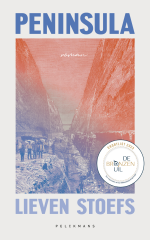
Corridoio (Peninsula)
Translated from
Dutch
to
Italian
by Matilde Soliani
Written in Dutch by Lieven Stoefs
8 minutes read
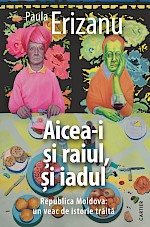
Hele, holky (It’s Both Heaven and Hell Here. Moldova: a Century of Lived History)
Translated from
Romanian
to
Czech
by Klára Našincová
Written in Romanian by Paula Erizanu
6 minutes read
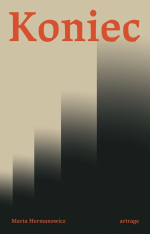
Konec
Translated from
Polish
to
Slovenian
by Sara Hočevar Mucić
Written in Polish by Marta Hermanowicz
13 minutes read

Meine Mutter hat Blumen gezüchtet (Условията не са важни)
Translated from
Serbian
to
Bulgarian
by Tsvetomira Mladenova
Written in Serbian by Ljiljana D. Ćuk
5 minutes read

В края
Translated from
Polish
to
Bulgarian
by Evgenia Geneva
Written in Polish by Marta Hermanowicz
13 minutes read

Poslové příštích dní
Translated from
Spanish
to
Czech
by Martina Kutková
Written in Spanish by Alejandro Morellón Mariano
4 minutes read
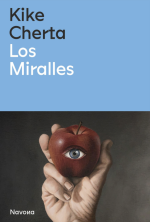
De familie Miralles
Translated from
Spanish
to
Dutch
by Lies Doms
Written in Spanish by Kike Cherta
9 minutes read
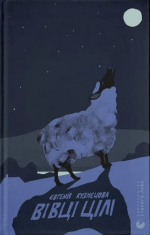
Le pecore stanno bene
Translated from
Ukranian
to
Italian
by Claudia Bettiol
Written in Ukranian by Eugenia Kuznetsova
6 minutes read
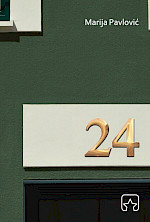
24
Translated from
Serbian
to
Czech
by Markéta Chlebovská
Written in Serbian by Marija Pavlović
7 minutes read
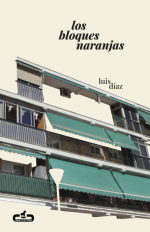
Los bloques naranjas
Una ventana a la amistad masculina: la corporalidad y los afectos truncados, torpes, subterráneos, que se dan en una pandilla de chicos de barrio durante los 2000.
Written in Spanish by Luis Díaz
8 minutes read
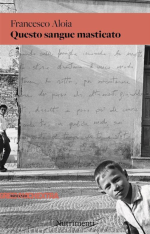
Ta prežvečena kri
Translated from
Italian
to
Slovenian
by Zarja Lampret Prešeren
Written in Italian by Francesco Aloia
9 minutes read

Гірка кров
Translated from
Italian
to
Ukranian
by Olena Roman
Written in Italian by Francesco Aloia
8 minutes read

Хей, момичета (It’s Both Heaven and Hell Here. Moldova: a Century of Lived History)
Translated from
Romanian
to
Bulgarian
by Valentina Zlateva
Written in Romanian by Paula Erizanu
7 minutes read
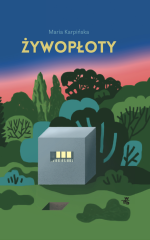
Żywopłoty (The Hedges)
“Debiut Karpińskiej to opowiadania pisane Gombrowiczem, ale fajniejsze, bo o ludziach z naszych ulic” Olga Hund
Opis okładkowy:
Żywopłoty to historia człowieka, którego tożsamość zbudowana jest na narracji – istnieje tylko wtedy, gdy opowiada, dlatego jego dzieje rozpisane są niczym dzieje świata, który on szczelnie wypełnia.
Żywopłoty – z ich odrealnieniem, a jednocześnie koncentrancją na zwykłych, prostych codziennych sprawach – układają się w rodzaj baśni. To baśń o tym, co w życiu najważniejsze.
Poszczególne mikrohistorie można poznawać osobno i przy każdej na nowo odkrywać perspektywy i wymiary człowieczeństwa. Czyta się je – jak utwory najlepszych autorów czeskich, takich jak Pavel czy Hrabal – jak rzecz niewymuszoną, trochę spoza literackiego świata, nieosadzoną w konkretnej rzeczywistości i czasie.
Written in Polish by Maria Karpińska
9 minutes read
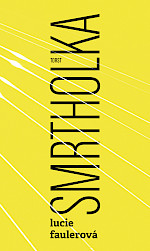
Morana
Translated from
Czech
to
Polish
by Agata Wróbel
Written in Czech by Lucie Faulerová
8 minutes read

Овцете са цели
Translated from
Ukranian
to
Bulgarian
by Dayana Gocova
Written in Ukranian by Eugenia Kuznetsova
5 minutes read

Meine Mutter hat Blumen gezüchtet (Pogoji niso pomembni)
Translated from
Serbian
to
Slovenian
by Natalija Milovanović
Written in Serbian by Ljiljana D. Ćuk
5 minutes read

Coridor (Peninsula)
Translated from
Dutch
to
Romanian
by Andreea Bălteanu
Written in Dutch by Lieven Stoefs
8 minutes read
Alameda Zorilor: el comienzo
Translated from
Romanian
to
Spanish
by Corina Oproae
Written in Romanian by Andrei Crăciun
9 minutes read